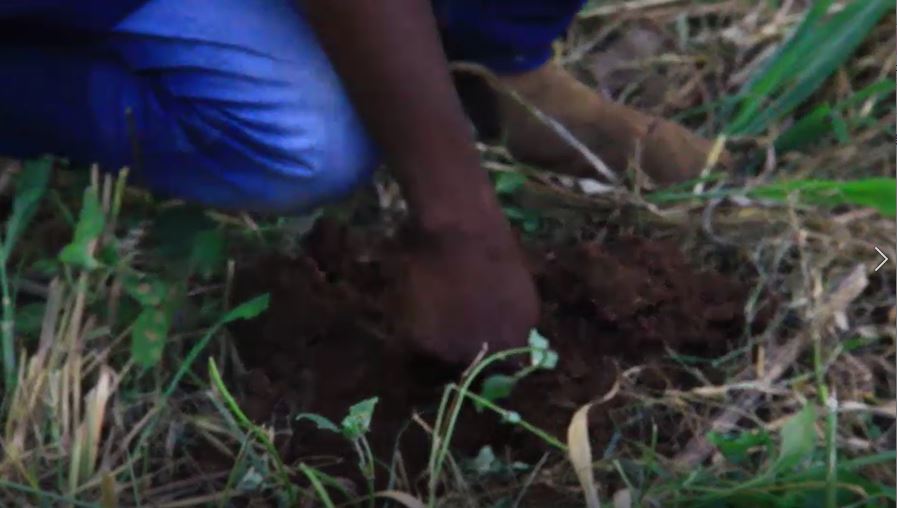From yields that are dwindling due to unpredictable rainfall seasons to soils that are unable to provide essential plant nutrients to sustain crop growth, there is a need for more in-depth reflection on how to better address issues affecting food production, such as promoting no-till agriculture for long-term farming.
Farmers, Agric extension agents, media among others selected from Oti, Volta, Ahafo, Central, Greater Accra, Eastern, and Bono Regions are now keen to adopt innovations learnt at the training in their respective districts, to achieve beneficial outcomes.
They benefited from a 4-day training on “Building Champions in Agribusiness Value Chains for Climate Change Resilience” organised by the Ghana Agricultural Sector Investment Programme (GASIP).
This workshop aims at identifying champions and building their capacity among Agribusinesses, Farmer Based Organizations and other partners for Climate Change Resilience.
The Champions went through a 4-day residential training to enable them to become ambassadors who will be engaging and sensitizing stakeholders, especially farmers, on Climate Change and environmental sustainability within their groups, communities, and even schools and faith-based organization.

The Ghana Agricultural Sector Investment Programme (GASIP) is being implemented by the Ministry of Food and Agriculture, and funded by an IFAD loan of USD 36 million and USD 10 million Adaptation for Smallholder Agriculture Programme (ASAP) grant.
The Adaptation for Smallholder Agriculture Programme is IFAD’s flagship programme for channeling climate and environmental finance to smallholder farmers.
Agriculture is the most important economic activity in several parts of Ghana, including the Oti, Ashanti, Central, Volta, Ahafo, and Bono Regions.
However, land degradation and climate dangers have a significant impact on economic activity.
This is because large-scale agricultural practices contribute to environmental degradation, like-minded organizations, individuals, and stakeholders working together to educate communities about sustainable agriculture practices that will help them to reclaim the environment again.
The Ghana Agricultural Sector Investment Programme, in collaboration with the Centre for No-Till Agriculture, is promoting the adoption of climate-smart agriculture measures to mitigate the effects of climate change.

The Centre for No-Till Agriculture is well-known for empowering communities through climate-smart agriculture, which promotes sustainable agriculture methods and environmental protection.
"You know issues of climate change are here with us. And as we have said, we are finding difficulty in getting fertilizer but there are rich technologies that are very important that these climate champions to emphasis to farmers," National Programme Coordinator of GASIP, Klutse Kumodor said.
Eric Addai, a participant from Jemaric farms in South Dayi, says he is impressed with the integrated approach and plans to replicate it in his district's four traditional zones to pass on the knowledge he has gained.
The practical training at the Centre for No-Till Agriculture has also pleased Rose from the Afadjato South District.
Her remarks are similar to those of Ayuba Gibrilla, the 2019 national best young farmer.
Mr. Gibrillah says he plans to share the knowledge he has gained with the young farmers in his community in order to assist them boost crop production.
A number of other farmers and Agric extension agents were enthusiastic about the training, despite their lack of familiarity with the technologies.
Mr. Kudomor emphasised the need of focusing on small-scale farmers because they are the ones who are most affected by climate change.
He said improving food production by encouraging small-scale farmers to use climate change technologies would be significant.
The technologies and management practices which have proven to sustain and boost agricultural production include: appropriate land preparation with no or minimum tillage, no burning, use of climate-resilient seeds, appropriate nutrient/fertilizer management, and appropriate planting methods – right spacing, row planting.
Others include appropriate and timely weed and pest control, timely harvesting of produce and good storage practices, diversified crop-rotation, intercropping, and cover-cropping, permanent soil cover with crop residues
The rest include live fencing, fire belt, operation of group charter and no bush burning around the community.
Farmers are expected to boost output on their farmlands in order to meet daily nutritional needs as well as generate cash.
Latest Stories
-
Syria’s minorities seek security as country charts new future
4 minutes -
Prof. Nana Aba Appiah Amfo re-appointed as Vice-Chancellor of the University of Ghana
10 minutes -
German police probe market attack security and warnings
11 minutes -
Grief and anger in Magdeburg after Christmas market attack
12 minutes -
Baltasar Coin becomes first Ghanaian meme coin to hit DEX Screener at $100K market cap
1 hour -
EC blames re-collation of disputed results on widespread lawlessness by party supporters
1 hour -
Top 20 Ghanaian songs released in 2024
2 hours -
Beating Messi’s Inter Miami to MLS Cup feels amazing – Joseph Paintsil
2 hours -
NDC administration will reverse all ‘last-minute’ gov’t employee promotions – Asiedu Nketiah
2 hours -
Kudus sights ‘authority and kingship’ for elephant stool celebration
2 hours -
We’ll embrace cutting-edge technologies to address emerging healthcare needs – Prof. Antwi-Kusi
3 hours -
Nana Aba Anamoah, Cwesi Oteng special guests for Philip Nai and Friends’ charity event
3 hours -
Environmental protection officers receive training on how to tackle climate change
3 hours -
CLOGSAG vows to resist partisan appointments in Civil, Local Government Service
4 hours -
Peasant Farmers Association welcomes Mahama’s move to rename Agric Ministry
4 hours

